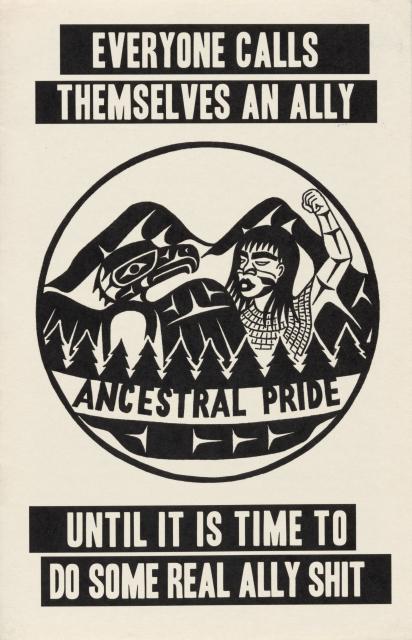
Xhopakelxhit
Everyone Calls Themselves an Ally Until it Is Time to Do Some Real Ally Shit
Portland, OR: Microcosm Publishing, 2015
General Research Division
War, Colonialism and Protest
During times of political conflict and war, censorship and campaigns to curtail freedom of speech have often accelerated. This section explores the importance of protecting the right to speech and artistic expression that is critical of government action during times of war and social upheaval.
The items in this section address the United States’ colonial and military presence around the world from 1898 to the 1980s. Many date from the rise of anti-war and anti-colonial movements in the mid-20th century, but Our new colonies: Cuba, Porto Rico and the Philippines illustrates the way maps could justify U.S. imperial conquest in the wake of the Spanish-American War in the late 19th century. The Assembly Area in Central Park map (1967), the 3 Flags for 1 Space and 6 Regions artpiece (1981), and the Proposal for a Monument for the Survival of the University of El Salvador: Blasted Pencil (Which Still Writes) etching (1984) were produced in response to the Vietnam War, the Cold War, and the Salvadoran Civil War respectively, and in this context represent resistance through activism and art. In the U.S. territory of Puerto Rico, books like ABC de Puerto Rico (1968) that celebrated Puerto Ricans’ Indigenous identity were censored for fueling nationalist sympathies.
Publications like Struggle and Everyone calls themselves an ally until it is time to do some real ally shit bring this anti-colonial and anti-racist spirit into the 21st century. Such initiatives repeatedly face censorship; through these items we see how the protection of critical political speech connects more broadly to the freedom to read.






